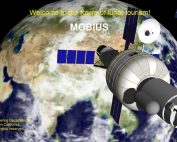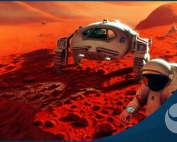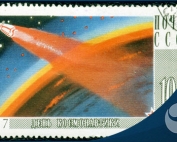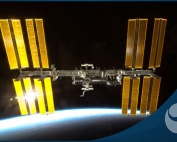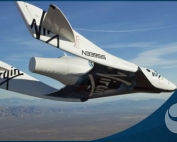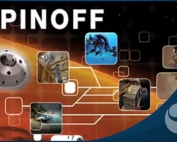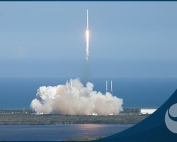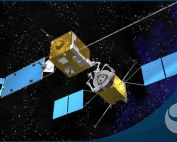The International Institute of Space Commerce has been involved in a number of initiatives to further the exploration and exploitation of Space. We try to share our publications as widely as possible, so they can be found here, also also on Amazon or iTunes.
Below you can find some of the projects we have been involved in.
Join the Conversation
Location, Location, Location on the Moon
What is a lunar colony but a real estate development? And when discussing real estate, we must look at the prime criteria: Location, Location, Location! In this presentation brief, Hoyt Davidson lists and discussed the strengths of seven potential sites for a commercial lunar base, given the industries that would benefit from those sites. The [...]
MOBIUS: An Evolutionary Strategy for Lunar Tourism
The MOBIUS concept architecture presents an evolutionary methodology for lunar tourist missions. In the MOBIUS scenario, a quartet of spacecraft is suggested in a specific supersynchronous Earth orbit as a nominal trajectory for a cislunar, cycling vehicle system. Earth and lunar shuttlecraft service the cycler at Earth perigee and lunar proximal apogee of the selected [...]
Can A Space “Megafund” Move Humanity Closer To Becoming A Multiplanetary Species?
We present a case for funding space development projects -- commercially viable, and riskier projects -- with a financially engineered, risk managed “megafund”. This work is partially inspired by the work of others who have explored the potential benefits of a megafund in achieving the development goals of capital intensive, very high risk, very high [...]
International Cooperation in Space, from USSR to Russia
This chapter presents a historical overview of international cooperation in space during the period of the Union of Soviet Socialist Republics (USSR) and to the present days of the Russian Federation. The post-Soviet era and current international cooperation in space are described through interviews with people who were or still are involved in the joint [...]
Using the International Space Station as a Test Bed for the Commercial Space Marketplace
The international space exploration industry faces two related and bewitching obstacles to its long-term programmatic health. The first is a U.S. administration that views exploration through the lens of the overall economic and political problems afflicting the American economy. In other words, no blank check is forthcoming for NASA, given the nation's deep fiscal woes. [...]
A Tourist’s Perspective on Space
When I was 6 years old my first grade teacher turned on the television so we could watch the launch of one of the first Space Shuttle missions. From the amazing moment that the Main Engines ignited and my classmates and I saw this marvel of technology rise into the Florida skies, I knew I [...]
To Plan for a Century: ISU’s Vision of Education in Space
From the very beginning of its Founding Conference in 1987, the International Space University (ISU) has lived with the vision that one day it would be able to educate students in space. The founding vision saw three steps in the development of the University: first, a postgraduate summer program (which continues today as the Space [...]
Spin-Out and Spin-In in the Newest Space Age
For the aspiring space entrepreneur, rocket science may be the biggest obstacle. This is definitely not because rocket science is impossibly difficult. Since at least the time of Robert Goddard, we have known that however difficult it is, it is not impossible. In fact, rocket science is an obstacle as much because of the impression [...]
Space-Rush : A New Way Forward for Space Exploration & Settlement
Since the days of the Apollo program, most of NASA’s manned exploration activities beyond LEO have used what could be called a ‘mission’ based approach. This approach requires that the astronauts take all of the resources required for the mission from Earth, at great expense and difficulty, while providing little (if any) infrastructure for future [...]
Prospects for In-Space Re-Fueling
Concepts for relieving the terrible mass-fraction penalties of launching out of Earth’s gravity well by re-fueling spacecraft on-orbit have been proposed for decades (Reference 1). Certainly it makes theoretical sense to avoid carrying all needed mission propellants (as well as other vital fluids and/or gases) from liftoff to the final orbit by ‘topping off’ at [...]


